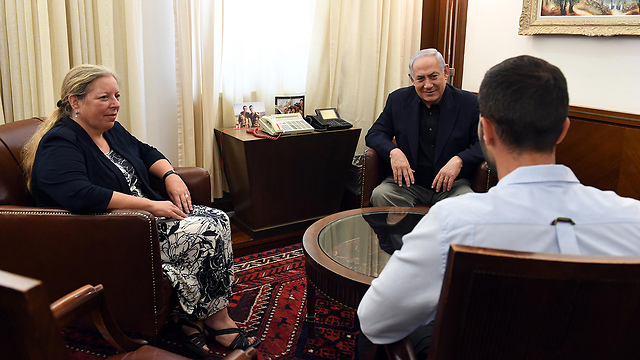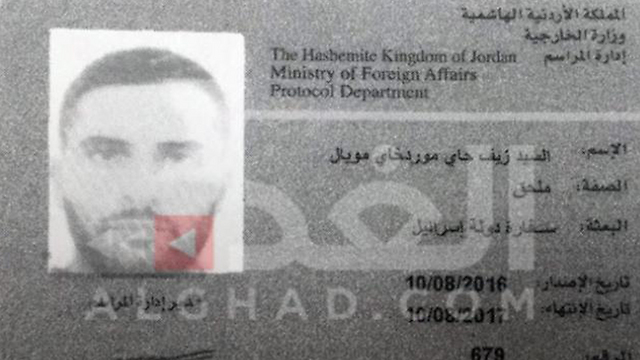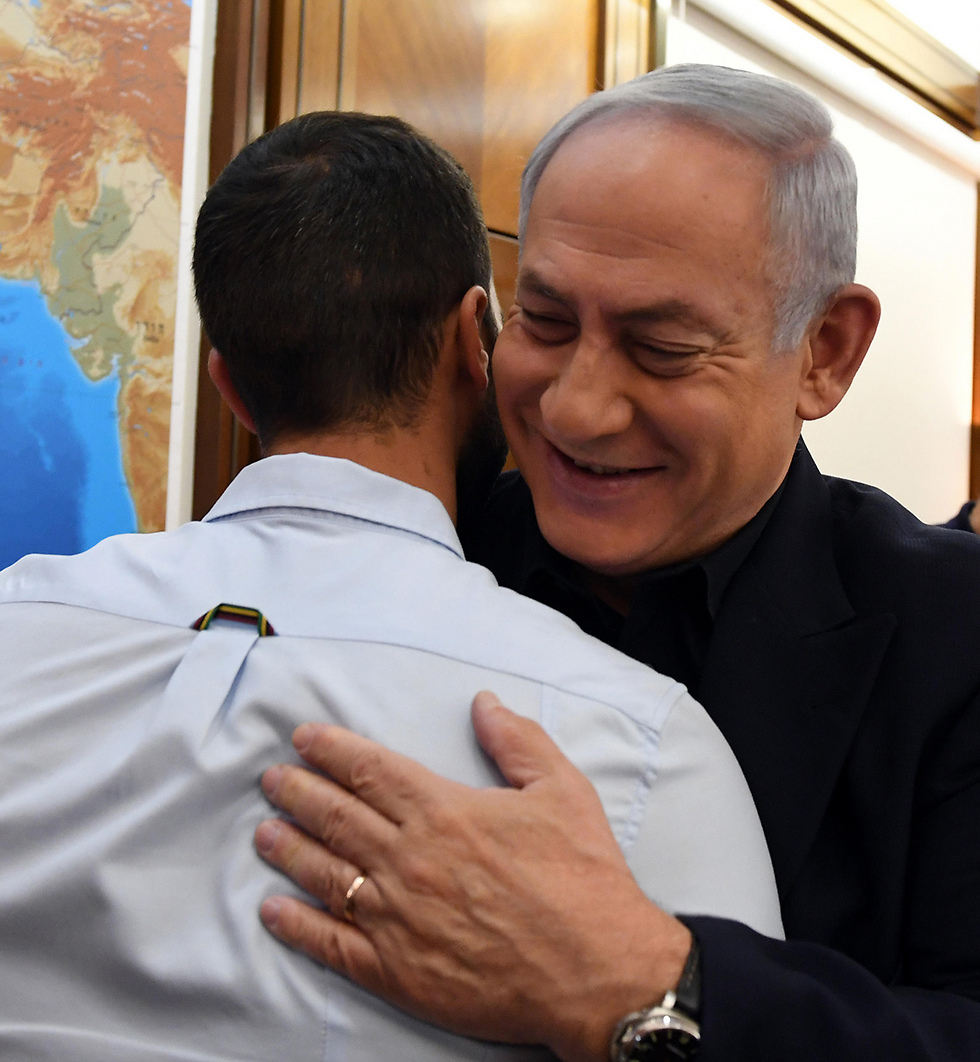
Security guard Ziv Moyal

Jordan: Israeli must take legal action against guard before reopening embassy
While Jerusalem plans to send new ambassador to Amman, Jordanian official says 'that ambassador will not be welcome in Jordan until a due legal process takes its course and justice is served,' adding 'The guard enjoyed immunity and not impunity under Vienna conventions.'
AMMAN - Jordan will not allow Israel to reopen its embassy in Amman until it has launched legal proceedings against an Israeli security guard who shot dead two Jordanian citizens in July, a Jordanian diplomatic source said on Thursday.
Israel must also be able to assure its Arab neighbor that "justice has been served" in the case, the senior source said, asking not to be named.
The embassy was closed shortly after Israel hastily repatriated the guard under diplomatic immunity to prevent Jordanian authorities from interrogating him and taking any legal action against him. The Israeli ambassador and embassy staff were pulled out.

Netanyahu meets with the guard, Ziv Moyal, and Israel's ambassador Einat Schlein (Photo: Haim Zach/GPO)
"They can look for a new ambassador, but that ambassador will not be welcome in Jordan until a due legal process takes its course and justice is served," the diplomatic source said.
"Our position remains solid in Jordan.. The embassy will not reopen until these conditions are met... which is the position we took from the very beginning," he added.
Jordan maintains that even if the guard had diplomatic immunity that did not mean he could not be punished.
"The guard enjoyed immunity and not impunity under Vienna conventions," the source said, referring to the Vienna Convention that specifies privileges given to diplomats.
"Jordan acted in compliance with its obligation under international law and Israel has to do the same," the source said.
Jordanian officials have treated the shooting as a criminal case and say the two unarmed Jordanians, one a bystander and the other a teenage workman, were killed in cold blood by the armed guard.
Israel said the armed guard opened fire after being attacked and lightly wounded by the workman, who was delivering furniture at his home within the embassy compound, and acted in self-defence, in what Israeli officials called a "terrorist attack".
A televised welcome and hero's embrace by Prime Minister Benjamin Netanyahu of the guard enraged King Abdullah. In a rare outburst, the monarch accused Netanyahu of using the incident as a "political show" saying it was "provocative on all fronts."
The king called on Israel to put the guard on trial.
"From the very beginning they had addressed this issue in a disgraceful way to politically exploit it," the source said.
The handling of the shooting has tested ties between Israel and Jordan, one of only two Arab states that has a peace treaty with Israel. They have a long history of close security ties.
Many Jordanians, in a country where the peace treaty is unpopular and pro-Palestinian sentiment widespread, were outraged the guard was allowed to leave and staged protests calling on the authorities to scrap the 1994 peace treaty.
Israel has said it is highly unlikely it would prosecute the security guard but has hinted at financial compensation to the family of one of the dead Jordanians.

















